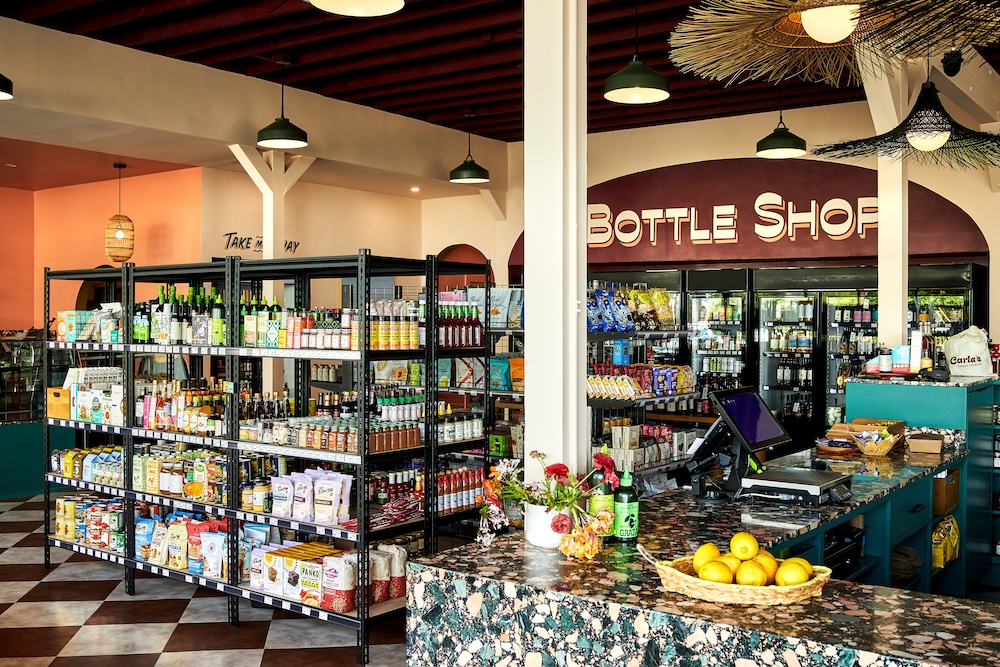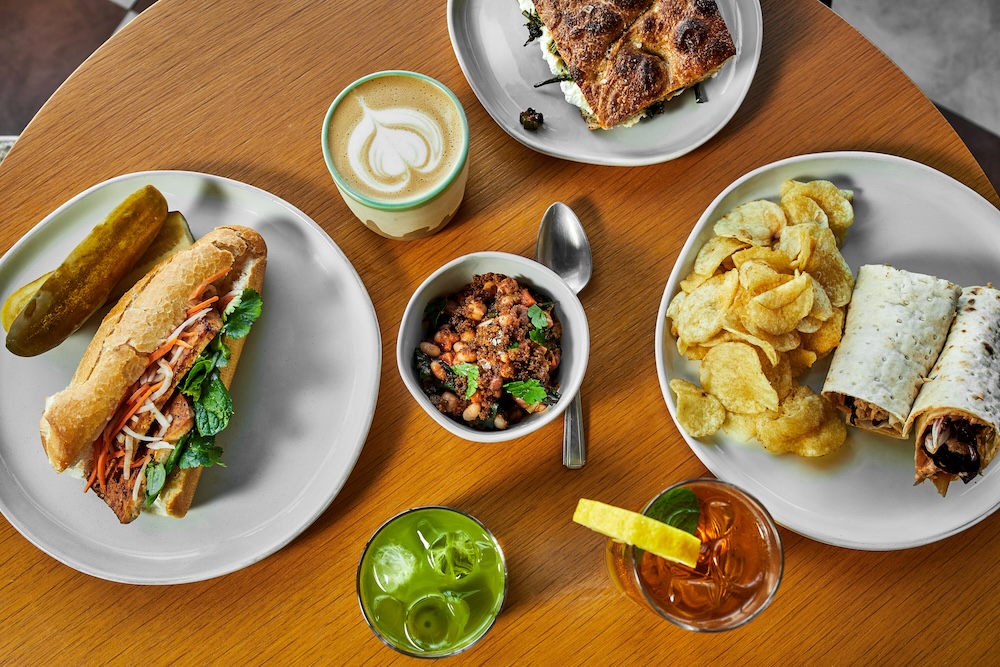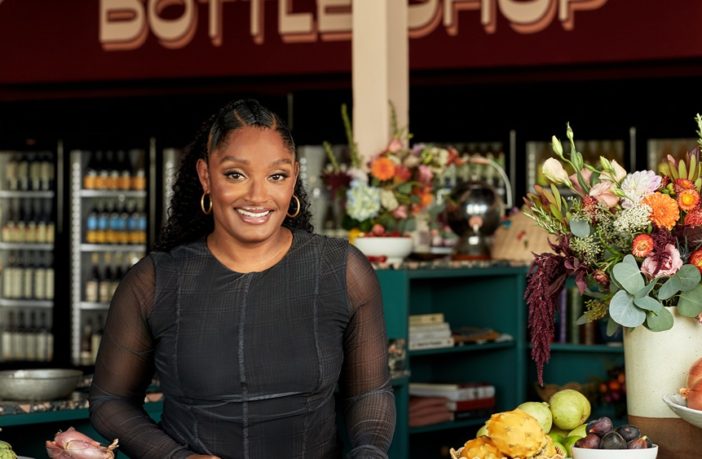Preserving our legacy through food has always been a part of the Black experience, but we can’t make tasty dishes if the fresh items we need aren’t readily available. Supermarket entrepreneur Ariell Ilunga is making sure that residents can easily and effortlessly get their food at Carla’s Fresh Market, which opened in the diverse Highland Park neighborhood in Los Angeles.
“Opening Carla’s Fresh Market has always been a dream of mine. I’ve always had a deep appreciation for good food and hospitality, given my Southern roots in Memphis, Tennessee,” Ilunga tells EBONY.
“More importantly, I love how food creates and nourishes community. Farmers markets have always provided a place for building relationships, and I wanted to be part of fostering these connections.”
 Carla’s Fresh Market. Image: Katrina Frederick.
Carla’s Fresh Market. Image: Katrina Frederick.
The birth of her second child set her on her journey. “I noticed how difficult it was to return to the farmers market for my weekly haul on top of my regular grocery store shopping for pantry items and other household necessities. I saw an opportunity to increase access to fresh, local food sources in a more accessible format by creating a one-stop-shop grocery store.”
Getting her idea off the ground was a seven-year endeavor. “Opening a business post-pandemic has been a feat; however, I’m so grateful to finally have a place that feels like home for so many in our community. We know everyone’s name, staples and favorites, and we love seeing them stop in for coffee or a sandwich just to linger and enjoy time together.”
Carla’s Fresh Market is also in legacy of a dear friend who passed during the pandemic. Carla had mentored Ilunga, always encouraging her to pursue her dreams. After Carla’s passing, Ilunga felt her presence encouraging her to get out of her slump and open the market. When the entrepreneur finally received the funding and space, she dedicated the store to Carla.
Ilunga tapped into her past experience and relationships to helm her own business. “I managed farmers markets for five years, including the iconic Hollywood Farmers’ Market that supplies everyone from prominent chefs to families, spearheading their prepared foods section,” she shares. During this time, she connected with local farmers and progressive food makers who placed quality ingredients and sourcing at the forefront of their business.
“There’s a clear difference between what is available in grocery stores that source from everywhere in the world and what is procured right in our backyard, and how both uniquely affect our health and wellness.”
Carla’s Fresh Market is filled with local, BIPOC-helmed food brands like Black and woman-owned Trade Street Jam and chili crisp from Mount Washington’s Cuatro Mamas. Freezer shelves are constantly being restocked with Pi00A Asian-inspired Neapolitan pizzas from a deaf and CODA family-owned business, while Xinca empanadas are from a Salvi-Latin chef.

 Carla’s Fresh Market. Image: Katrina Frederick.
Carla’s Fresh Market. Image: Katrina Frederick.
One of the few Black women sommeliers in LA curates the “Bottle Shop,” which features a wide selection of wine, beer, and N/A beverages for shoppers. Julia Ziegler-Haynes’ gourmet lunch program whips up produce-driven sandwiches and salads with fresh produce and boldly flavored condiments, all served on the best fresh-baked bread in the city.
“In historically Black Los Angeles neighborhoods, there was a lack of premium grocery stores because of the presumption that the community cannot afford high-priced ingredients,” Ilunga declares. “I want to break that stereotype while increasing access to produce and good food. Carla’s Fresh Market exists to provide an option for produce and food products that aren’t all available at markets within the neighborhood.”
While the market charges prices in line with other premium grocery stores “so that our vendors are fairly compensated,” Ilunga is finding ways to increase access to high-quality food by accepting EBT credits. She adds, “Our Monday Happy Hour offers discounted produce and helps to eliminate food waste.”
Carla’s Fresh Market is continuing to find ways to make good food more accessible to everyone. “We know how fresh, whole foods impact our energy and wellbeing. Knowing this source for nutrition exists will hopefully signal that all communities deserve access to good food.”



